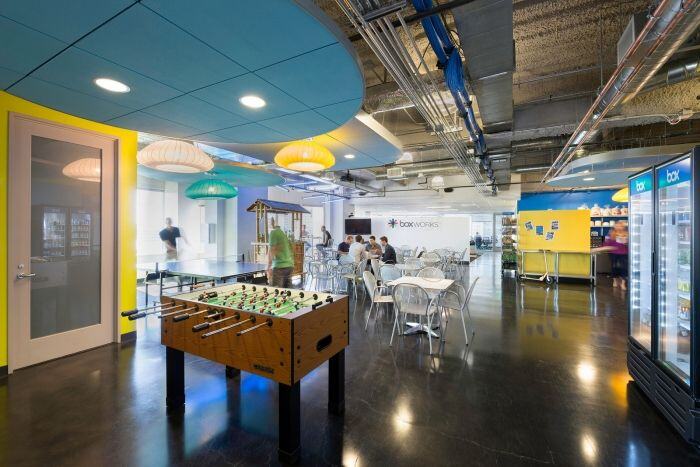Secondary School
01 July 2025
Sustainability in Action: Student-Led Initiatives at ISL
Read more
About us
Student Life
Community
Contact
ISL Holiday Camps
The ISL Holiday Camps are dedicated to delivering safe, fun, and stimulating holiday experiences in the outdoors.
Discover
About us
Student Life
Community
Parent Teacher Association (PTA)
Alumni & Friends Community
Family life in Lausanne
Parent Hub Programme
Contact
ISL Holiday Camps
The ISL Holiday Camps are dedicated to delivering safe, fun, and stimulating holiday experiences in the outdoors.
Learn
Admissions
Blog CampsParents

12 novembre 2019 By Khwaish
Khwaish , an ISL year 12 student went to visit Google's HQ in California. Here is her report.
This summer, I spent a few days in San Jose, California, with my aunt and cousins who live there. While we were there, my aunt asked me if I would like to tour the Google offices as she has a friend that currently works there. Seeing this as an opportunity I could not miss, I said yes.
Silicon Valley has a certain ambitious ring to it. Home to many of the biggest companies in tech today, it is booming with innovation. Known for its intense yet highly rewarding work environment, many come here with the hopes of starting up their own businesses and only a few succeed.
Like everything, however, the valley is not without its flaws, having faced several scandals relating to the lack of work-life balance, the alleged ‘bro-culture’ present throughout, and data privacy mishaps. It is a place that is still growing and, as it does, is learning how to deal with the magnitude of the power it possesses.
Keeping this in mind, I got into the car, ready to tour the Google premises. I was excited, yet slightly apprehensive.
As we pulled up into the Google driveway, we met my aunt’s friend and introduced ourselves. He set the scene for us, we were currently standing in front of the company’s main ‘campus.’ This struck me as unusual; when I think of multinational corporations and the space in which they work, the last word that comes to mind is campus. Instead, I think of words like ‘office’. However, through using the word campus, I began to associate Google with an educational institution like a school or university.
As the tour progressed, it became clear to me that Google was unlike any organization I knew of. For example, as my aunt’s friend explained to us, the work culture is extremely democratic and project-based. Every single decision that is made within a group or the company is voted on. As he explained, “Here everyone has a voice: interns, employees, managers, etc.” This is in stark contrast with the traditional top-down approach of most organizations where you are told to do a task or a project without much discourse. The benefits of such a structure are numerous and include increased innovation and productivity; in a place like Google, constant innovation is a must.

Another unusual thing about the company? The amount of facetime employees get with top executives such as Larry Page, Sergey Brin, and Sundar Pichai. The company organizes a weekly event every Thursday after work for people to come together and discuss ideas, as well as bring up any issues they are facing at the moment. It is a popular event and these top executives are there frequently.
This theme of investing in employees and hearing out their concerns can be seen elsewhere throughout the campuses. On bulletin boards, you see posters advertising cultural groups like ‘Latina Women in Tech’. Nap pods and game lounges can be seen throughout the space, giving employees the chance to unwind and relax, in order to combat the effects of the intense work that they do. All of this gave me the impression that Google is aware that it does not exist within a vacuum. It is actively trying to take and foster initiatives that are pertinent in today’s world.

This is evident as well within the diversity present throughout the company. You could see different ethnicities present, different languages being spoken, and different food being served in the many cafeterias and food trucks on campus. Oh yes, they have food trucks, and ice cream stations, and juice bars, but I digress.
It is clear that Google encourages diversity within its community. In fact, according to my aunt’s friend, each and every team within a project is checked to see if it is both ethnically and gender-balanced, to make sure all perspectives are being heard and accounted for.
In general, employees have more control over the work that they do. Everywhere you go within the campuses, there is an opportunity to learn something new and to share your knowledge with others.
All of this results in an environment that reminds me of our school in many ways, an environment that is culturally and ethnically diverse, as well as where the philosophy that you never stop learning is truly imbibed and reflected. It results in a culture that is becoming the norm in Silicon Valley.
However, it is important to remember to address that even if Google has certain ideals they believe in - like ‘don’t be evil’ - they don’t always meet their goals. The most recent example being when the company was fined $170 million for collecting child users’ data without the consent of their parents.
Overall, my visit to Google was enlightening and exciting. It was encouraging to see the ways in which large companies, like Google, are taking the initiative to change the way they approach the world that they exist in with a purpose larger than just profit. However, it also reminded me that organizations always have room to grow. It is easy to get wrapped up in the glamour of the work that the Silicon Valley is doing, but it is important to remember that having ideals isn’t always enough. It is important to constantly reflect upon them and imbibe them - something most organizations could work on.
This post was originally written for our student's community magazine, "The High".
Read similar articles

Secondary School
01 July 2025
Sustainability in Action: Student-Led Initiatives at ISL
Read more

Diversity, Equity and Inclusion
23 June 2025
Storytelling: Reflections on the SGIS Pride Educators Conference at ISL
Read more

Alumni and Friends
17 June 2025
Captain Super Sleep: An ISL Children's Book Collaboration
Read more